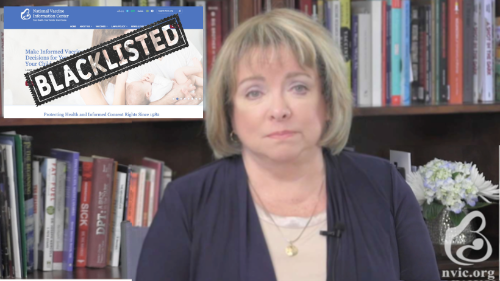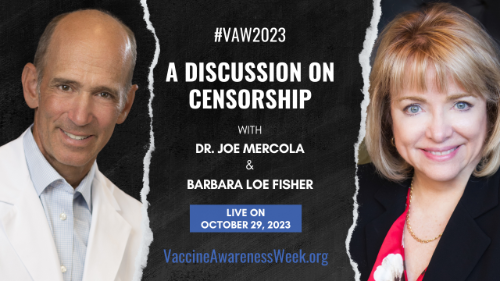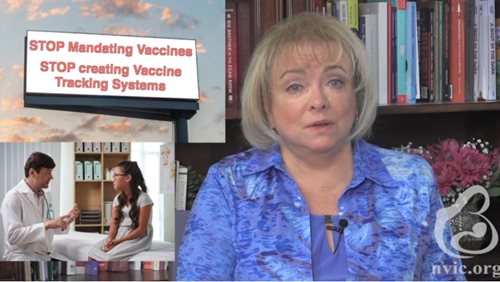
The federal government policy directs all healthcare workers to get an annual influenza vaccination.1 Today, nearly 70% of hospitals in the U.S.2 require healthcare workers to get a flu shot every year as a condition of employment.3 This mandate causes conflict for certain healthcare workers whose religious beliefs prevent them from receiving the influenza vaccine. Healthcare workers who request a religious exemption may face retaliation from an employer, including being fired or not hired for a job.
Civil Rights Act of 1964 Prohibits Discrimination for Religious Beliefs
Title VII of the Civil Rights Act of 1964 (“the Act) may offer legal protection to employees when their religious beliefs prevent them from receiving a flu vaccination at their workplace. The Act prohibits employers from refusing to hire, fire or otherwise use discriminatory practices against current and prospective employees on the basis of sex, race, color, national origin or religion.

An employee with a sincerely held religious belief is a protected class under the Act. In order to establish a case under the Act, an employee must establish that a mandatory job requirement conflicts with a sincerely held religious belief, that the employer was informed of this belief, and that the employer took disciplinary action or otherwise sanctioned the employee for refusing the vaccination.4
Equal Employment Opportunity Commission (EEOC) Enforces the Act
The Equal Employment Opportunity Commission (EEOC) enforces the Act and investigates charges of unlawful employment discrimination. The EEOC is a five-member panel appointed by the U.S. President with the advice and consent of the U.S. Senate and EEOC members serve a five-year term.5
The EEOC often receives complaints from healthcare workers who faced retaliation for refusing a mandatory flu vaccination for religious reasons. Recently, the EEOC has been more hawkish in pursuing this type of legal action but has seen mixed results.6
Healthcare Workers Win EEOC Lawsuits in Michigan and Pennsylvania
In 2019 in Michigan, the EEOC filed a lawsuit on behalf of a healthcare worker who alleged that she was not hired for a medical transcript position at a hospital because she refused to get the influenza vaccine based on her religious beliefs. The EEOC lawsuit was successful and the hospital was ordered to pay $75,000 in back pay, compensatory and punitive damages, and to train management and post its policy prohibiting religious discrimination. The court found that a reasonable accommodation for religious views in this situation would have been for the hospital administration staff to allow the employee to wear a mask, just as an employee declining the vaccine for medical reasons would be allowed to wear a mask.7
In 2016, a Pennsylvania hospital entered into a consent decree with the EEOC in a lawsuit brought by six employees who were fired when their religious exemption to influenza vaccination was denied, despite the hospital granting 14 medical exemptions to other employees that year. The hospital agreed to pay $300,000 in back pay and compensatory damages and the healthcare workers were reinstated.8
Healthcare Worker Loses Lawsuit in Massachusetts
Not all EEOC lawsuits filed against employers on behalf of employees, who were sanctioned for seeking religious exemptions to mandatory flu shot policies, have proven successful. In an often cited case, a district court in Massachusetts found that a hospital’s effort to accommodate an employee’s religious beliefs opposing mandatory flu shots, including (1) offering alternative work in the hospital that did not include patient contact; (2) offering a medical exemption; and/ or (3) providing a pork free vaccine that did not conflict with the employee’s religious beliefs, constituted a reasonable accommodation under the law.

The court concluded that allowing the employee to forgo the flu shot at her current position working with patients would have placed an undue burden on the hospital. The court argued that patients could be at risk of contracting influenza when coming in contact with the unvaccinated employee.9
Employers Must Make “Reasonable” Accommodations for Religious Beliefs
When an employee makes a request for an accommodation due to a sincerely held religious belief, employers are urged to seriously consider the request, enter into good faith talks and offer appropriate accommodations. An appropriate accommodation is a reasonable one that does not place more than a de minimis (minimal) hardship on the employer.10 The court has found that, “an employee is "not entitled to any specific accommodation… only a reasonable one.”11
Accommodation requests are not considered reasonable when they place an undue hardship on employers. This is not an extraordinarily difficult hurdle for employers to get past.
Although it may suffice for the employer of healthcare workers to show that patients could be put at risk for exposure to influenza if a healthcare worker is allowed to forgo a flu shot, the “no exceptions” mandatory flu shot policy should be applied equally to all employees directly interfacing with patients.12 If healthcare workers exempt from the flu shot for medical reasons are allowed to keep their jobs, an argument could be made that allowing religious exemptions provides no greater risk to a patient’s health.
However, a counter argument could be made that only a small percent of healthcare workers would qualify for a medical exemption under narrow federal vaccine contraindication guidelines set by the CDC’s Advisory Committee on Immunization Practices (ACIP) that have been adopted by the employer.13 Therefore, in terms of total numbers, unvaccinated healthcare workers with medical exemptions would pose less of a risk, while a potentially greater number of unvaccinated healthcare workers with religious exemptions would present an unreasonably higher risk to patients.
A court will look at all the facts and circumstances surrounding the employer’s offered accommodation to an employee for religious beliefs. “In analyzing whether an employer provided a reasonable accommodation, "a court should take a 'totality of the circumstances' approach and consider whether the combination of accommodations provided by the employer was reasonable."14
General EEOC Guidelines Broadly Define Religion
The EEOC has offered general guidance on what constitutes an undue hardship to an employer of healthcare workers with regard to religious exemptions from mandatory vaccinations. In an informal discussion letter, the EEOC's Office of Legal Counsel wrote that:
"[f]acts relevant to undue hardship…would presumably include, among other things, the assessment of the public risk posed at a particular time, the availability of effective alternative means of infection control, and potentially the number of employees who actually request accommodation."15
The EEOC defines religion broadly and includes organized religions, as well as uncommon personal religious beliefs held by an individual or a minority of people. The religious belief does not need to be espoused by an established church or even supported by the employee’s religion.16 The key factor is that belief is sincerely held and religious in nature.

A district court in Ohio refused to dismiss an employee’s case when she requested an exemption from receiving a mandatory flu shot because she was vegan. The court found that the employee’s views on veganism could equal the sincerity of belief that one would hold with traditional religious beliefs.17
Title VII of the Act only protects religious beliefs and does not extend to personal, moral or conscientiously held beliefs. The Third Circuit Appellate Court has affirmed a district court case in Pennsylvania finding that an employee was not subject to religious discrimination when he was fired from his healthcare position when he refused the mandatory flu vaccine due to his moral beliefs.
Employers Can Be Sanctioned for Religious Belief Discrimination
When a court finds that the employer has unlawfully discriminated against an employee for sincerely held religious beliefs, the court can order the employer to halt unlawful employment practices and/or order that the employee be reinstated or hired and award the employee, back pay and damages, or other equitable relief.18
The Civil Rights Act of 1964 provides healthcare workers protection from retaliation for requesting a religious exemption to mandatory flu vaccinations, but whether a case is ultimately successful depends on the facts of the case and the jurisdiction of the court.
References:
1 National Vaccine Advisory Committee. Recommendations from the National Vaccine Advisory Committee: Standards for Adult Immunization Practice. Public Health Rep 2014; 129(2): 115-123.
2 Non-VA Hospitals
3 University of Michigan Institute of Healthcare Policy and Innovation. Most hospitals now require workers to get flu shots – except those that treat veterans, study finds. June 1, 2018.
4 Fallon v. Mercy Catholic Med. Ctr. of Se. Pa., 877 F.3d 487 (3d Cir. 2017).
5 The U.S. Equal Employment Opportunity Commission. Title VII and Other EEOC Enforced Laws: General Inquiry. Dec. 15, 2015.
6 Smith, Allen. J.D. EEOC Opposes Mandatory Flu Shots for Workers. SHRM.org. Nov. 22, 2016.
7 WILX. Com. Hospital settles lawsuit filed over the flu vaccine. June 28, 2019.
8 U.S. Equal Employment Opportunity Commission Saint Vincent Health Center To Pay $300,000 To Settle EEOC Religious Accommodation Lawsuit.. Press release. Dec. 23, 2016.
9 Robinson v. Children's Hosp. Bos., Civil Action No. 14-10263-DJC, at *10 (D. Mass. Apr. 5, 2016.)
10 Bombatch, Zachary. EEOC Litigation Persists Against Hospitals with Mandatory Flu Vaccine Program. The National Law Review. December 5, 2018.
11 Robinson v. Children's Hosp. Bos., Civil Action No. 14-10263-DJC, at *10 (D. Mass. Apr. 5, 2016) citing O'Brien v. City of Springfield, 319 F. Supp. 2d 90, 105 (D. Mass. 2003).
12 Smith, Allen. J.D. EEOC Opposes Mandatory Flu Shots for Workers. SHRM.org. Nov. 22, 2016.
13 CDC. Recommendations and Guidelines of the Advisory Committee on Immunization Practices (ACIP): Contraindications and Precautions. Table 4-2. Conditions incorrectly perceived as contraindications or precautions to vaccination (i.e., vaccines may be given under these conditions). Jan. 10, 2019.
14 Robinson v. Children's Hosp. Bos., Civil Action No. 14-10263-DJC, at *10 (D. Mass. Apr. 5, 2016)
15 Ibid.
16 Wolters Kluwer. EEOC letter explains why employers may be required to exempt healthcare workers from mandatory vaccines as a religious accommodation.
17 Chenzira v. Cincinnati Children's Hosp. Med. Ctr., NO. 1:11-CV-00917 (S.D. Ohio Dec. 27, 2012)
18 U.S. Equal Employment Opportunity Commission. Title VII of the Civil Rights Act of 1964.









Leave a comment
Your email address will not be published. Required fields are marked with an *